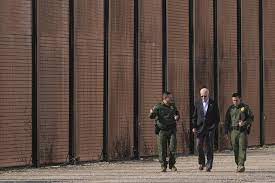Why is Japan holding a rebuilding conference for Ukraine when the country is still at war?
Just before the second anniversary of Russia’s invasion of Ukraine, Japan is organizing a meeting for Japanese and Ukrainian officials to discuss rehabilitation efforts, while the United States and other Western nations continue to concentrate on military assistance for use on the front lines. The Japan-Ukraine Conference for Promotion of Economic Growth and Reconstruction is being attended by hundreds of high-ranking politicians and business leaders in Tokyo. AP provides an explanation of the event’s goals, attendees, and the projects that will be addressed.

Those in attendance?
The conference is jointly organized by the governments of Japan and Ukraine, as well as by JETRO, the Japan External Trade Organization, and Keidanren, a significant business association in Japan.
More than one hundred government and business representatives are being led by Ukraine’s prime minister, Denys Shmyhal, while President Volodymyr Zelenskyy is preparing a video statement. Attending are Environmental Protection and Natural Resources Minister Ruslan Strilets, Finance Minister Serhiy Marchenko, and First Deputy Prime Minister Yuliia Svyrydenko.
Leading Japan is Prime Minister Fumio Kishida, accompanied, among many others, by Foreign Minister Yoko Kamikawa, Minister of Economy, Trade, and Industry Ken Saito, and Keidanren Chair Masakazu Tokura. About a hundred representatives from Japanese businesses are there; most are from startups, but there are also representatives from well-known firms including Kawasaki Heavy Industry, Yanmar Holdings, Kubota Co., and telecom provider Rakuten Symphony.
WHY RIGHT NOW?
After two years of fighting, Japan believes the conference will strengthen support for Ukraine at a time when focus has shifted to the Gaza crisis. Tokyo officials argue that in order to send a message that employing force against another nation would not be accepted, the international community should band together and assist Ukraine.
JAPAN IS DOING THIS, BUT WHY?
The main focus of the conference is on investments and rehabilitation in Ukraine that might position Japan as a leader in this field. The national security of Japan is also at stake. According to Kishida, “Ukraine today could be East Asia tomorrow” on many occasions. Japan has vehemently opposed Russia’s invasion, seeing it as an attempt to forcefully alter the “status quo” in one direction. China’s more muscular military maneuvers in the area are causing alarm.
Japan’s post-World War II pacifist doctrine, which binds it to never employing force against other countries, has won it a great reputation for economic and development cooperation. Tokyo has loosened this constraint in an effort to develop a military deterrent against China, but its main objective in supporting Ukraine has been humanitarian aid. Its military hardware supply has been restricted to non-lethal weaponry.
Compared to the $111 billion in arms, equipment, and humanitarian aid that the United States and other Western countries have sent to Ukraine over the last two years, Japan’s $12.1 billion commitment is far less.
The administration wants to reduce business risks associated with operating in Ukraine while facilitating investment from the private sector.
Rising from the ashes of World War II destruction, massive earthquake damage, and other tragedies, Japan feels it has a unique role to play in supporting Ukraine’s reconstruction.
WHICH KINDS OF DEALS ARE UNDER DEBATE?
According to authorities, the Ukrainian side has great hopes for the technological know-how of Japanese businesses as well as Japan’s background in postwar and catastrophe rehabilitation. The bulk of conference attendees are startups, and future investment and commercial prospects will result from Ukraine’s restoration.
The elimination of mines and debris, bettering living and humanitarian conditions, farming, biochemical manufacturing, digital and information industries, transportation and power generation infrastructure, and anti-corruption measures are the seven target areas selected by the Japanese government.
Komai Haltec, a bridge construction company located in Tokyo, is negotiating a contract to provide Ukraine’s national gas operator with backup power in the form of modest wind power producing facilities. Rebuilding Ukrainian gas pipes is allegedly something Sumitomo Trading and Kawasaki Heavy Industry are thinking about doing. In August, Rakuten Symphony and Veon, a Ukrainian information firm specializing in 5G and other communication services, inked a partnership agreement. Two Japanese firms stand out for their innovative landmine clearance equipment mounted on radar and their satellite imagery-based soil component analysis technology for optimum farming.
AVAILABLE DURING THE CONFERENCE?
During the inaugural session on Monday, Kishida emphasized in his keynote address the significance of cross-sector investment and appropriate support for the future growth of Ukraine.
A joint statement from the two parties will be released, along with the announcement of several memorandums of cooperation for the rebuilding. Two more seminars are required of the attendees: one on the economics and the other on women, peace, and security.







